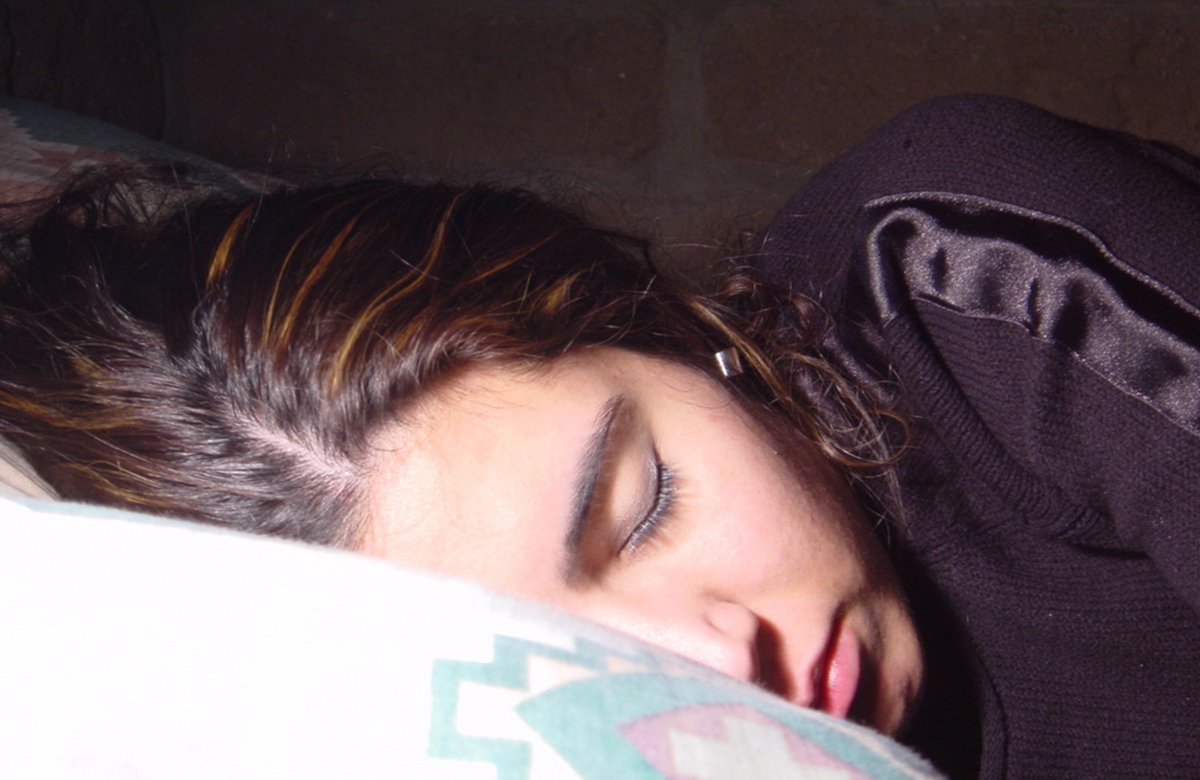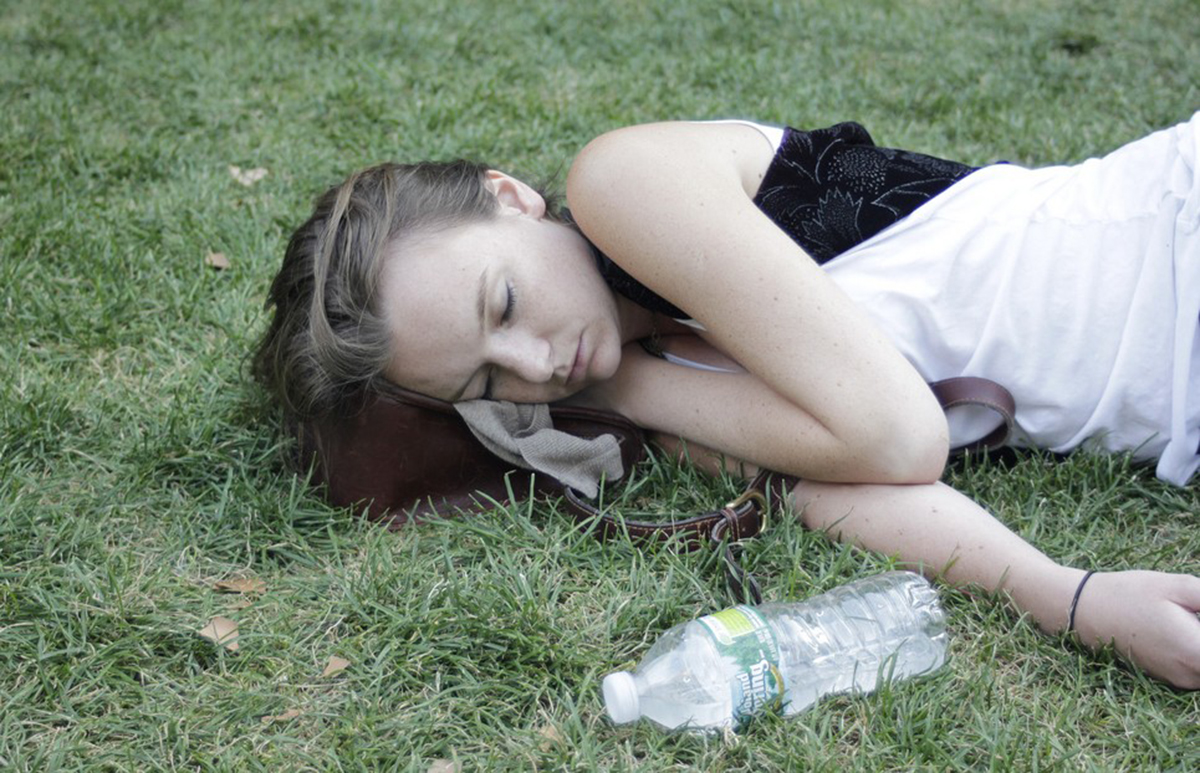Do you feel constantly tired every day without knowing what's causing the fatigue? Sleep is incredibly important for your body, and not getting enough sleep or having a bad quality sleep can impact the rest of your day. How you feel when you wake up in the morning and throughout the day is largely due to how well you've slept and how long you've slept for.
Generally, insomnia is a symptom of a different issue, rather than a medical condition in itself. For instance, you might be suffering from insomnia because of anxiety and depression, general stress, neurological conditions, certain medications, and physical illnesses.
We all know that sleep is important, but just how crucial is it?
Lack of sleep can literally stop your brain from functioning properly, as the cells in your body and brain don't have enough time to repair themselves during sleep. That's why your limbs might feel achy and your brain foggy — because the lack of sleep reduces the rate of cell repair. Even missing out on just one hour of sleep every night can add up to 7 hours at the end of the week — which equals nearly an entire night of lost sleep in just one week.
Clearly, you don't want that happening. So, what can you do to make sure you get enough sleep? Just keep reading and learn how to sleep easy each and every time your head hits the pillow by following these simple tips.

Establish a Sleep Schedule
OK, so this may not sound super appealing if you've gone your whole life without a sleep schedule — but it's one of the most important things on this list.
It's a rigid tip, but it really, really works and is very effective for many sufferers of sleep deprivation. Go to bed, go to sleep and wake up at the same time each day and you'll feel more refreshed on waking than if you were to sleep for the same amount of hours at different times of the day/night.
If you do need to change your bedtime, do your body a favor and change it in small 15-minute increments so that it doesn't come as too much of a shock to the system. And if you miss out on a few hours of sleep? Catch up and have a nap. Even 30 minutes of sleep can leave you feeling awake and refreshed. Be careful about napping after dinner, though - you may well be tempted to sleep right through.
See Also: Best Ways to Fall Asleep Faster and Easier
Regulating Your Sleep/Wake Cycle
Your sleep/wake cycle (circadian rhythm) is what regulates your sleeping hours and waking hours. Our bodies naturally produce a hormone called melatonin which aids this cycle, making you feel sleepy at night and wakeful during daylight hours. Your brain produces less melatonin through the day and more during the evening to make you feel sleepy. But a number of modern-day technologies can interfere with the secretion of this hormone - for example, not getting enough exposure to natural light during the day (especially problematic during the winter months when you travel to and from work when it's dark out and spend the whole day in a dark office), or being exposed to too much artificial light during the night, when using smartphones, tablets and anything with a back-lit screen. Get at least 15 minutes of natural light during the day, even if it's cloudy out, and minimize your use of technology/watching TV for at least an hour before bedtime. Using low wattage lamps in the evening will also help ease you into sleep.
Take It Easy
Often, just getting into a relaxed state of mind is enough to send you off into sweet dreams. If you're struggling with relaxation, follow these tips:

- Eliminate noise. Even the smallest amount of noise, from a dog barking down the block or a car driving past can increase wakefulness. Use earplugs or thick curtains/blinds to block out noise when you go to bed.
- Block out light. You might not know it, but you could be sensitive to light. Blackout curtains will help to block out even the smallest amount of light, but it's also important that you don't look at your phone/tablet once you go to bed as it'll wake you up again. And if you wake up in the middle of the night? Whatever you do, don't look at your clock - it'll only make you worry about how much time you have left to sleep.
- Keep your bedroom cool and comfortable. Too warm or too cold and you'll find it difficult to sleep. And if your bed is too hard or too soft, sleep will be elusive, so make sure that you have the most comfortable, cozy bed and a temperature-controlled room.
Sleep and Sex
Associating your bedroom with anything other than sleep and sex could make you more wakeful - especially if you're guilty of watching TV in bed or taking your laptop into your bedroom to answer some late night emails. Subconsciously, you'll come to associate your bedroom with everything but sleeping and sex, which means that when you want nothing more than to drift off into dreamland, your brain is more likely to be thinking about what you have to do at work tomorrow or the television program you just watched. Banish everything from your bedroom that has nothing to do with sleeping - or time spent with your partner - and you'll find that it'll be much easier to get to sleep.
Eat Right and Move More
It seems like we recommend eating a healthy diet and getting plenty of exercise for virtually every ailment, but it holds true for most things - the better you eat and the more you work your body, the better you'll feel.
Exercising will not only make you feel better by releasing endorphins, but it'll tire you out, too - perfect for helping you get to sleep.
See Also: 18 Tips for the Best Sleep Ever
And if those tips aren't quite doing the trick? Try these wacky tips:
- Curl your toes and uncurl - relaxing your body
- Eat cherries or drink cherry juice, as it's rich in melatonin
- Have a sleep ritual - something you do only before you go to sleep, whether you drink warm milk or take a lavender bath
- Rub your belly
- Think about everything you did all day and go back over it in chronological order - the effort of remembering your day will tire you out
- Listen to white noise or sleep hypnosis audio
- www.bhg.com/health-family/conditions/sleep/tips-to-help-you-fall-asleep/
- www.helpguide.org/life/sleep_tips.htm
- thesecretyumiverse.wonderhowto.com/how-to/8-weird-tips-help-you-fall-asleep-0139084/
- www.nhs.uk/Livewell/insomnia/Pages/insomniatips.aspx
- sleepfoundation.org/sleep-tools-tips/healthy-sleep-tips
- Photo courtesy of ros by FreeImages : www.freeimages.com/photo/101083
- Photo courtesy of Timothy Krause by Flickr : www.flickr.com/photos/timothykrause/6016197366

